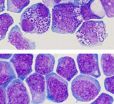(Press-News.org) New research from The Netherlands shows that people who smoke high-potency cannabis end up getting higher doses of the active ingredient (THC). Although they reduce the amount they puff and inhale to compensate for the higher strength, they still take in more THC than smokers of lower potency cannabis.
For the past decade or more, the common sense idea that high strength cannabis leads to higher doses of THC and therefore poses a greater risk of unwanted effects such as dependency has been challenged and labelled the 'potent pot myth'. It has been argued that smokers of strong cannabis adjust their drug intake to compensate for the potency, usually by inhaling less smoke or rolling weaker joints. It is even argued that 'super pot' is healthier for cannabis users because they get their desired high while inhaling less lung-harming smoke.
The Dutch researchers in this study observed 98 experienced cannabis smokers as they rolled and smoked joints using their own cannabis samples, which were of varying concentrations. Those who made strong joints inhaled smaller volumes of smoke, presumably in an attempt to titrate the amount of THC taken into the body. But these titration efforts were only partially successful, compensating for roughly half of the THC strength.
So although smokers of strong cannabis alter their smoking behaviour to compensate for the higher potency, they don't alter it enough. There is some truth to the 'potent pot myth'.
INFORMATION: END
Some truth to the 'potent pot myth'
2014-03-18
ELSE PRESS RELEASES FROM THIS DATE:
A new algorithm improves the efficiency of small wind turbines
2014-03-18
Small wind turbines tend to be located in areas where wind conditions are more unfavourable. "The control systems of current wind turbines are not adaptative; in other words, the algorithms lack the capacity to adapt to new situations," explained Iñigo Kortabarria, one of the researchers in the UPV/EHU'sAPERT research group. That is why "the aim of the research was to develop a new algorithm capable of adapting to new conditions or to the changes that may take place in the wind turbine," added Kortabarria. That way, the researchers have managed to increase the efficiency ...
Simulations predict blast scenarios, have crossover animation appeal in Disney's 'Frozen'
2014-03-18
COLUMBIA, Mo. – Simulation-based engineering science (SBES) allows researchers to predict the effects of building explosions and analyze the response of building materials to those threats. Using a $400,000, five-year CAREER grant from the National Science Foundation, researchers at the University of Missouri developed the Material Point Method (MPM) a computer-generated tool that not only creates blast scenarios that informs blast and impact resistant materials and design, but also is crossing over into Hollywood animation—most recently, Disney's Oscar-winning animated ...
Exposure to snuff smoke in non-smokers fell by 90 percent after the tobacco control laws
2014-03-18
Researchers of the Tobaco Control Unit of the Catalan Institute of Oncology (ICO) and the Bellvitge Biomedical Research Institute (IDIBELL) evaluated exposure to snuff smoke in nonsmokers before the entry into force of the first Spanish smoking ban and after the launch of the second law (2011 ) in the city of Barcelona.
Salivary cotinine
Cotinine is a nicotine derived substance that is used as a marker of exposure to snuff smoke in nonsmokers. Researchers at the ICO- IDIBELL measured the concentration of this substance in the saliva of those surveyed and found to have ...
In IBS, non-GI issues are more powerful than symptoms in patients' health perceptions
2014-03-18
BUFFALO, N.Y. – Social relationships, fatigue and other coexisting medical problems have a stronger effect on how patients with irritable bowel syndrome (IBS) rate their overall health than the severity of their gastrointestinal symptoms, a University at Buffalo study has found.
"Our findings suggest that in IBS patients and possibly patients with other diseases as well, health perceptions depend to a much larger extent on non-biomedical factors than those of us who are health care providers have ever suspected," says lead author Jeffrey Lackner, PsyD, associate professor ...
Sorption energy storage and conversion for cooling and heating
2014-03-18
In many industrialized countries, city skylines are dominated by imposing glass façades and skyscrapers made of concrete and steel. There is a drawback to these magnificent structures, though – they often get very hot in the summer, so they mostly need elaborate and costly air conditioning systems. And these already account for some 14 percent of Germany's annual energy consumption. Experts reckon that total cooling requirements in buildings will triple by 2020.
Cooling and heating using metal organic frameworks
Thermally driven cooling systems are one possible alternative ...
What factors contribute to sexual assault in the military and what can be done to prevent it?
2014-03-18
New Rochelle, NY, March 18, 2014–Recent high-profile cases have drawn attention to the problem of sexual assault in the U.S. military, the effects on survivors, and the actions and response of military leadership. Issues such as why there is more sexual assault in the military than in the general population, why it is under-reported, and what preventive approaches should the military adopt are explored in a provocative Roundtable Discussion published in the preview issue of Violence and Gender, a new peer-reviewed journal from Mary Ann Liebert, Inc., publishers. The article ...
Major breakthrough in developing new cancer drugs: Capturing leukemic stem cells
2014-03-18
This news release is available in French.
The Institute for Research in Immunology and Cancer (IRIC) at the Université de Montréal (UdeM), in collaboration with the Maisonneuve-Rosemont Hospital's Quebec Leukemia Cell Bank, recently achieved a significant breakthrough thanks to the laboratory growth of leukemic stem cells, which will speed up the development of new cancer drugs.
In a recent study published in Nature Methods, the scientists involved describe how they succeeded in identifying two new chemical compounds that allow to maintain leukemic stem cells ...
Getting rid of bad vibrations
2014-03-18
Whether you're looking at hairy spider legs, the alien-like faces of ants, or the spiky-looking surfaces of pollen – a scanning electron microscope delivers high-resolution images that are rich in detail. But you can't get perfect images unless you protect the microscope from vibration. If someone walking across the room or an elevator going up and down between nearby floors makes the table shake, you're unlikely to get good results. The simplest way to quell vibrations is to put the microscope on a granite base – a stone so heavy that it dampens vibrations occurring at ...
Who's afraid of math? Study finds some genetic factors
2014-03-18
COLUMBUS, Ohio – A new study of math anxiety shows how some people may be at greater risk to fear math not only because of negative experiences, but also because of genetic risks related to both general anxiety and math skills.
The study, which examined how fraternal and identical twins differ on measures of math anxiety, provides a revised view on why some children – and adults – may develop a fear of math that makes it more difficult for them to solve math problems and succeed in school.
"We found that math anxiety taps into genetic predispositions in two ways: people's ...
Suppressing unwanted memories reduces their unconscious influence on behavior
2014-03-18
Researchers part-funded by the Medical Research Council (MRC) have shown that, contrary to what was previously assumed, suppressing unwanted memories reduces their unconscious influences on subsequent behaviour, and have shed light on how this process happens in the brain.
The study, published online in PNAS, challenges the idea that suppressed memories remain fully preserved in the brain's unconscious, allowing them to be inadvertently expressed in someone's behaviour. The results of the study suggest instead that the act of suppressing intrusive memories helps to disrupt ...






